NURSERY
(from 3 to 36 months)
HOURS:
8.00/13.30
(half day)
8.00/16.00
(full day)
8.00/18.00
(full extended)
PRE-SCHOOL
(from 3 to 6 years)
HOURS:
8.00/16.00
(full day)
8.00/18.00
(full extended)
PRIMARY SCHOOL
(from 6 to 10 years)
HOURS:
8.00/16.00
(full day)
8.00/18.00
(full extended)
SUMMER SCHOOL
(from 6 months to 10 years upon availability)
Subscriptions are weekly or monthly
HOURS:
8.00/16.00
(full day)
8.00/18.00
(full extended)
Download our new training offer below
The structure, which has 2,000 square metres of covered space and 4,000 of outdoor space, is immersed in the Appia Antica park and consists of three school buildings, which house the spring section, the kindergarten, primary and secondary school, a gymnasium with changing rooms, an outdoor multi-purpose field, a canteen, workshops and ateliers, studios for consulting accredited experts in the world of childhood and parenting, as well as equipped outdoor play areas, and has a private and communal car park.
The School offers a secular education, centred on the development of the person and his or her social-emotional skills, and promotes an international culture that enables the pupil to look to the future with optimism and confidence (‘Early childhood education and care’ – EUROPEAN COMMISSION, 2014), becoming a citizen free of mental, social and emotional barriers.
The educational offer (P.O.F.), which makes use of an ‘Italian – English’ double curriculum to offer a wide range of opportunities and greater freedom in the construction of one’s own scholastic pathway, pursues objectives that conform to the Italian ministerial guidelines, enriched by indications deriving from the Anglo-Saxon learning system and by numerous interdisciplinary projects with a strong international and scientific scope, such as the S.T.E.A.M. methodology (Science, Technology, Engineering, Art, Mathematics) and the Life Skills methodology (‘Life Skills education in schools’ – W.H.O. 1993).
The psycho-educational methodology devised by Dr. Perla Boccaccini (Through Children’s Competencies – Ed. Bookness 2023), head teacher at the KLC School, is used at an interdisciplinary level, embracing the whole school. Its key elements are:
Psycho-education aims to provide information resources, habits and strategies to cultivate the health of the pupil and his or her home context, i.e. the family.
This methodology involves the development of practical skills to manage one’s emotions, thoughts and behaviour in a healthy and effective way. This process involves the use of stress management techniques, assertive communication skills, problem solving techniques and more generally the development of ‘Life Skills’.
Psycho-education aims to promote autonomy and self-efficacy.
The methodology involves families becoming members of the community, as social support is a key to the success of the method.
The psycho-educational methodology takes into account individual needs and preferences, adapting the educational approach to the specific characteristics of each person.
BILINGUALISM
The bilingualism project envisages the introduction of the English language from an early age, in line with the guidelines set out by the EUROPEAN COMMISSION (Language learning at pre-primary school, Brussels 2011).
Our school is a Registered Trinity College Examination Centre and Cambridge Preparation Centre. Our teachers are CELTA/TEFL certified and specialised in teaching children. Every year our pupils take the language certification exams according to the levels set by the European Framework, in particular E.C.E.R. (Common European Framework of Reference for Languages) and E.Q.F. (European Qualifications Framework). In the primary school, the certification process takes place through the Cambridge Young Learners Exams (Starters, Movers, Flyers) which are held at our school.
The international class represents a new classroom configuration, in which English is not taught, but is taught ‘in’ English, where the pupil is the protagonist of the learning process and the teacher a facilitator who focuses on the process and not the product. This methodological structure, in line with the European Guidelines (School development and excellent teaching for a great start in life, Brussels 2017) allows us to create innovative, inclusive and heterogeneous classrooms.
The subjects that enrich the school curriculum
ROBOTICS
At a time when technology is advancing rapidly, it is essential to prepare our pupils for the future by equipping them with the necessary skills to tackle complex challenges and innovate in various fields. The objectives of the subject are:
- Development of technological skills by learning the fundamentals of design and programming.
- Critical thinking and problem solving by developing the ability to analyse, think critically and solve problems.
- Collaboration and teamwork. Robotics encourages collaboration and teamwork.
- Preparation for the future. Knowledge of robotics will be a significant advantage for students wishing to pursue careers in science, technology, engineering and mathematics (STEM). It will also prepare them for a world in which automation and robotics will play an increasingly important role in multiple sectors.
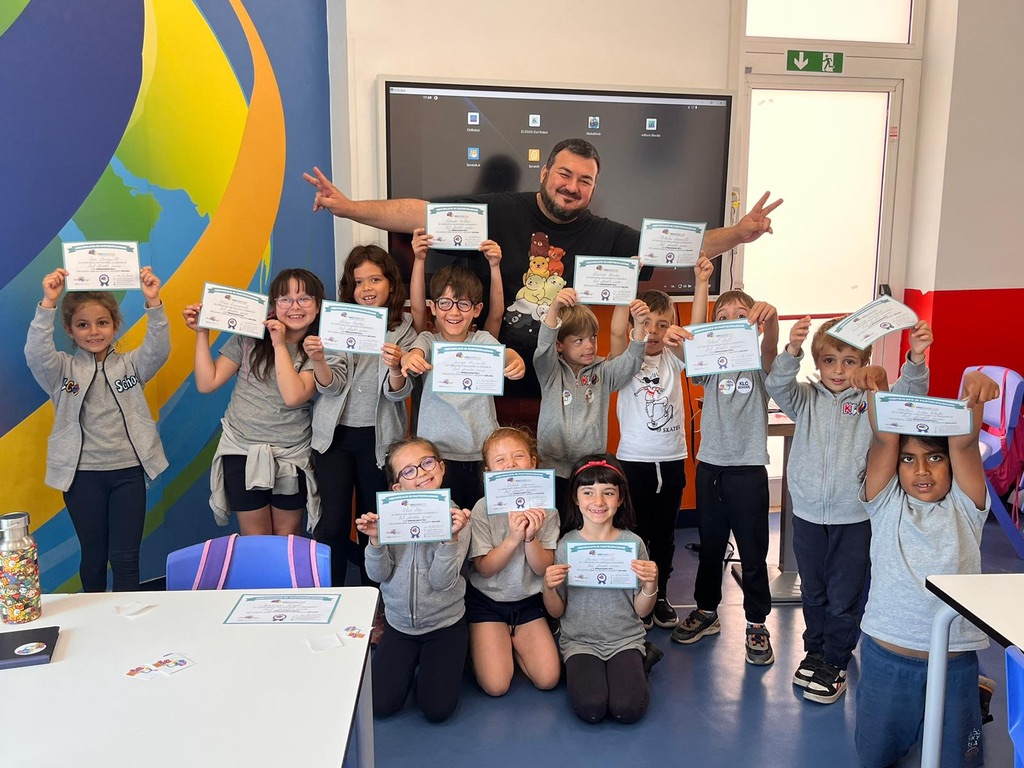
DRAMA CLASS
This course focuses on the art of acting and theatrical performance. It is a highly engaging subject that offers students the opportunity to explore the world of drama through a range of practical and creative activities in English.
In a ‘drama class’, students learn to develop a variety of skills related to acting, vocality, gestures and stage presence. Through improvisation exercises, acting rehearsals and the staging of drama scenes, students have the opportunity to express themselves artistically and explore a wide range of emotions and characters.
In addition to honing their acting skills, students in a drama class also learn to work in groups and collaborate with their classmates to create and stage theatrical performances. This encourages the development of social and communication skills, as well as fostering a sense of belonging and community within the school.
In addition, drama class can contribute to the improvement of self-confidence and communication by encouraging them to explore their creativity and put themselves out there in front of others.
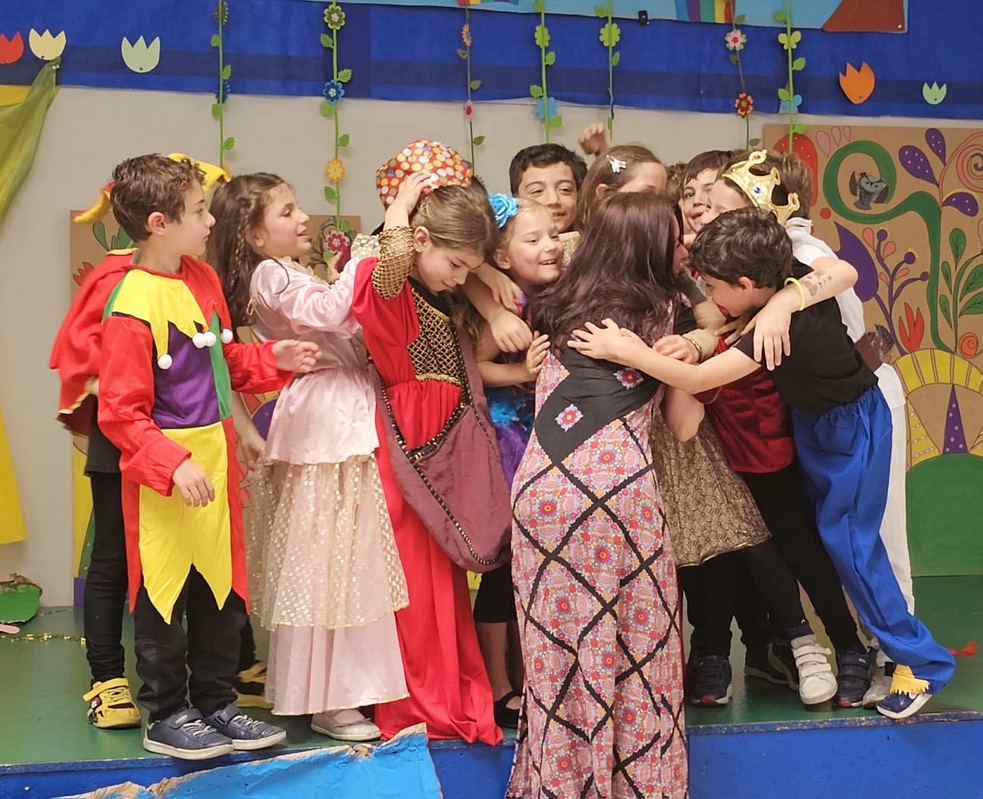
MUSICAL EDUCATION
Music education is included in our curriculum because it has multiple benefits that go beyond simply learning musical instruments or music theory:
Here are some key points on the importance of including music education in the school curriculum:
Development of cognitive skills. Scientific studies have shown that learning music is related to the development of cognitive skills such as critical thinking, memory, concentration and problem-solving. Students who study music tend to perform better in other subjects, such as mathematics and science.
Expression and creativity: Music is an important form of artistic expression that allows students to express emotions, thoughts and ideas in a unique and personal way. This stimulates children’s creativity and imagination, encouraging them to think in innovative and original ways.
Development of social skills: Music often involves teamwork and collaboration, encouraging students to communicate, listen and respect the opinions of others. These social skills are fundamental to the personal and professional success of individuals in later life.
Promoting emotional well-being: Music has the power to influence our emotional state. Studying and performing music can be an activity that helps pupils manage stress, anxiety and other emotional problems, thus improving their well-being.

MASTERCLASS
Each year, Masterclasses are held at our school that enrich our students’ educational experience by providing them with the opportunity to learn from industry experts, to be inspired, to make professional connections and to develop practical and soft skills that are crucial to their future.
BENEFITS
- Knowledge expansion. By having professionals selected for their strong skills and experience to share, we offer a broader and deeper perspective on a given topic or sector.
- Inspiration and motivation. Interacting with industry experts can inspire pupils and motivate them to pursue their own interests and ambitions. Seeing the success and experience of masterclass guests can encourage them to pursue their own passions and aspirations.
- Practical approach to learning. Masterclasses often include hands-on activities and demonstrations; this practical approach to learning helps students better understand the concepts and practical applications of what they are learning.
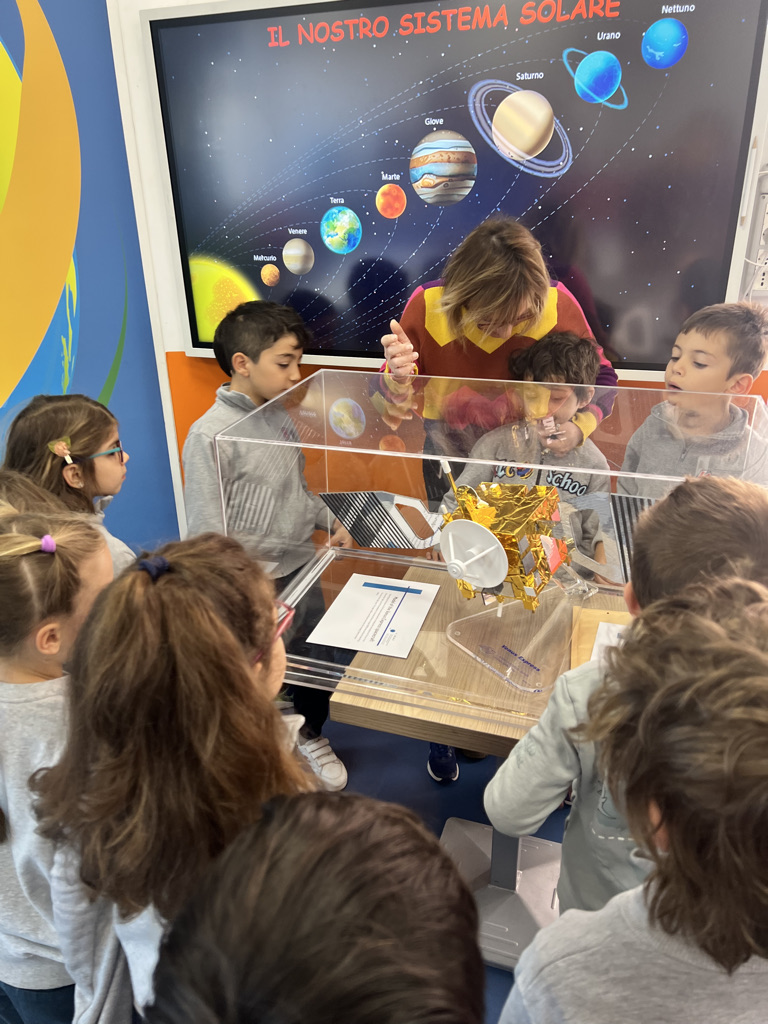
Extracurricular activities
It is possible to attend numerous after-school activities:
FOOTBALL, THEATRE, DANCE, MUSIC, TENNIS, BASKETBALL
(as well as numerous other POTENTIAL activities).
Ask for your appointment
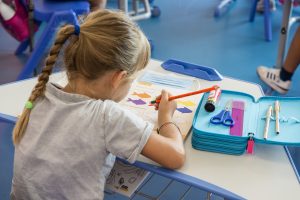
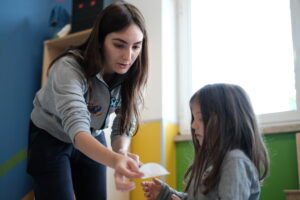
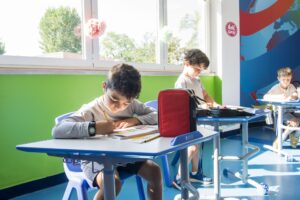
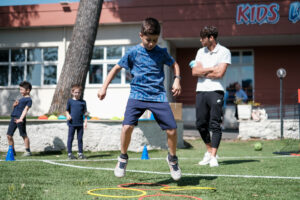
Browse the dedicated website
About Us

"We chose them last year, amidst a thousand questions from eager parents, to make the right choice. It was beginning for our little one and for us a new path "the school of grown-ups," as she calls it. A few months later, I can confirm that it was the right choice. An excellent school. Educators and staff trained, attentive and thorough to every need. Innovative and shared educational programs. Outdoor and indoor spaces maintained and clean. Really healthy and protected environment, full of professionalism and humanity difficult to meet."

"I'm Nausicaa's mom who attended this incredible daycare a few years ago.Besides having an educational model focused on social skills that helped my daughter fit in with great success in all the schools she attended afterwards (now an international school) the thing I'm most grateful to the facility is that it initiated my daughter into sports, culture and sports discipline, because the early years, as they taught me, remain etched in my heart but more importantly in my brain!"

"A place where children grow up peacefully and discover their abilities play by play. Not only kindergarten but also a real family for children and parents. I still remember every smile of my little girl when she entered the kindergarten and the desire to stay there until closing... tell me if it is little 🙂 I would make the same choice a thousand more times because of the professionalism, expertise and the opportunity given to all parents to discuss and address together any issues related to raising children. A great team !!!!!!"

"Simply everything I was looking for for my little girl. Loving and competent educators. New and stimulating activities are offered every day. Continuous dialogue between school and family, coordination always available for any doubt and the certainty of not being just a number. Welcoming, colorful and well-structured spaces. Flexibility of schedules that facilitates family organization. Highly recommended!"

"It's been a few years, it's been wonderful and unforgettable years, during which my baby girl has grown up pampered....almost certainly I will enroll her newborn little sister as well!!! Super recommended"

"A kindergarten that children want to return to? It is I like going to kindergarten! A facility surrounded by greenery in which experimental teaching, play, and bilingualism come together for a unique experience. Thanks to the director and the wonderful staff for their welcome to my grandchildren over the years. After knowing it, for them, there is only Amemi! Thank you."
Do you want to know our teaching method?
Visit our blog!
